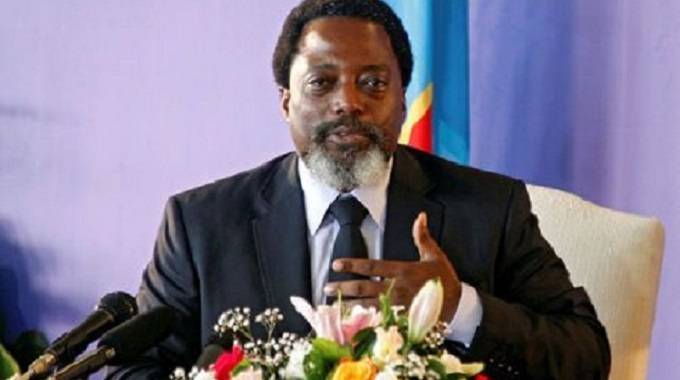Joseph Kabila raises return act prospects

KINSHASA — A month before his scheduled departure after nearly two decades as Congo’s president, Joseph Kabila received a procession of foreign reporters at his heavily guarded riverside palace for a rare series of interviews.
If the timing suggested a valedictory, the 47-year-old leader’s words indicated otherwise.
He vowed to remain in politics and, in one interview after another, left open the possibility of running again in 2023 when the clock resets on presidential term limits.
“My role will be to make sure that we don’t go back to square one, square one meaning where we found the Congo 22 years ago,” he told Reuters inside an ornate reception room with high ceilings and sweeping views of the churning Congo River.
“In politics, in life, you shouldn’t rule out anything,” he said when asked about a potential return. “There are still other chapters to write.”
In the 18 years since a youthful, clean-shaven Kabila succeeded his slain father, Laurent, the now bulked-up president sporting a billowy grey beard has traced an unlikely trajectory from accidental and apparently reluctant leader to the defining Congolese figure of his time.
Whether the vote due on December 23 brings down the curtain on the tumultuous Kabila era, which began when Laurent seized power in 1997, or triggers a new phase in which Joseph becomes the power behind the throne of his preferred successor, Emmanuel Ramazani Shadary, remains unclear.
It depends in part on how the Congolese reflect on his rule.
There were early accomplishments – ending a regional war and holding the first open presidential elections – but also incessant conflict, lethal crackdowns on pro-democracy protesters and corruption that the government acknowledges siphoned off billions of dollars of potential revenue.
Foreign investment has propelled Democratic Republic of Congo to the status of Africa’s top copper producer and the world’s leading miner of cobalt, a crucial component of electric car batteries, but militia violence has persisted in the east.
Denis Mukwege, the Congolese doctor who shared this year’s Nobel Peace Prize for his efforts to end the use of sexual violence as a weapon of war, said Kabila had a right to remain in politics but hoped voters would remember his broken promises.
“None of the elements needed to install a real democracy have been made during his time in power,” he told Reuters.
Kabila’s critics and some analysts say concerns about his personal security – his assassinated father’s mausoleum stands below the presidential palace – and the fortune reportedly amassed by his family could account for a seeming reluctance to cede power.
A report last year by a research group at New York University found his family’s businesses are likely worth tens of millions of dollars. Kabila has called such reports “stupidity”.
He did not specifically respond to a Reuters investigation here that showed nearly a third of the purchase price of Congolese passports goes to a company in the United Arab Emirates whose owner is believed to be a close relative of the president.
Even if Shadary, a former interior minister who many analysts say was chosen for his loyalty and lack of an independent political base, beats his two main rivals, Kabila has reason to worry about his ability to pull the strings.
He need only look next door to Angola, where President Joao Lourenco quickly marginalised Jose Eduardo dos Santos, his powerful predecessor who ruled for 38 years, by accusing family members of corruption.
“Kabila saw what happened in Angola. That’s why he chose the person who is the most loyal and, above all, the least threatening to his personal power,” said Manya Riche, who advised Kabila from 2008 to 2011.
Referring to an arrangement in which Vladimir Putin remained Russia’s dominant leader as prime minister until he could run for president again, she said: “This isn’t Russia. At a certain point here, it’s the chief who’s in the chair who is the chief.”—Reuters.










Comments